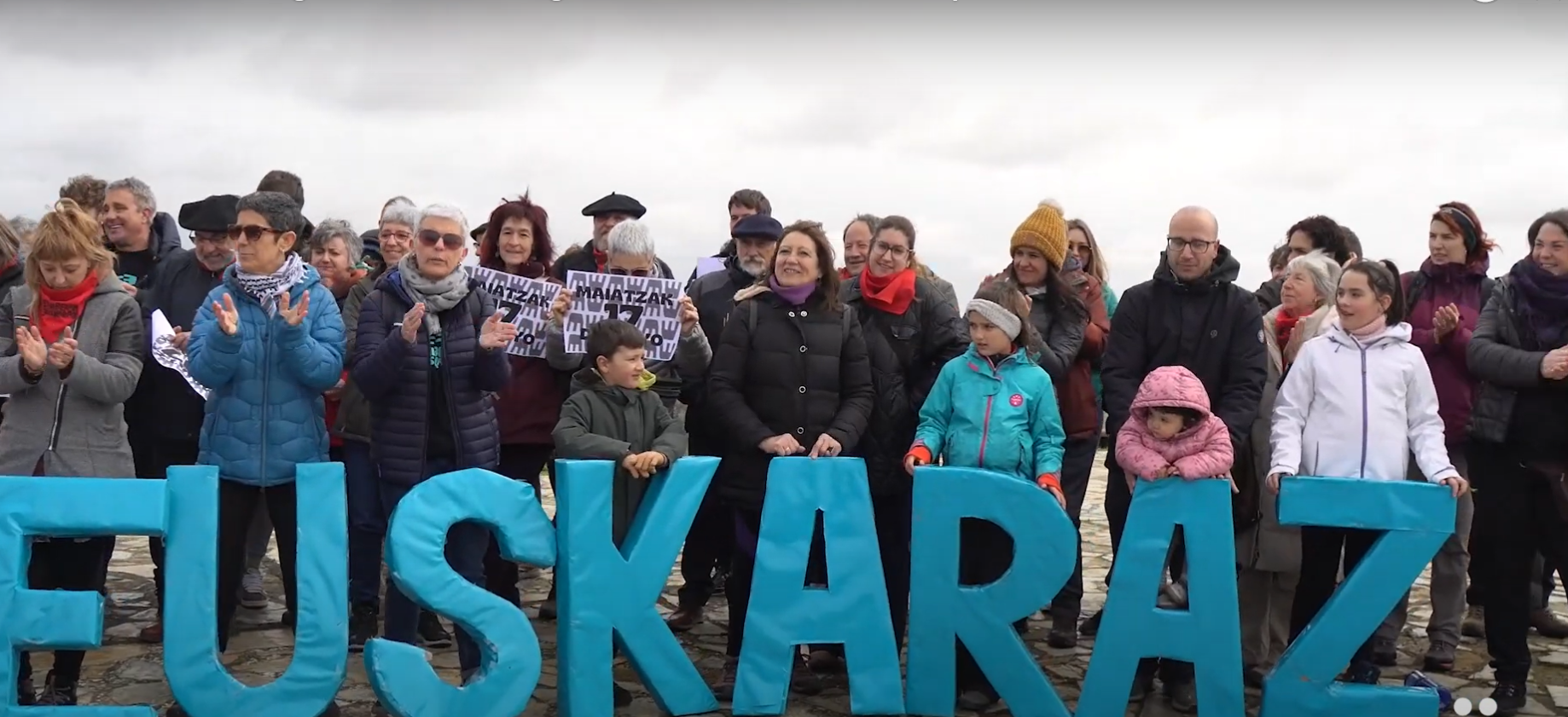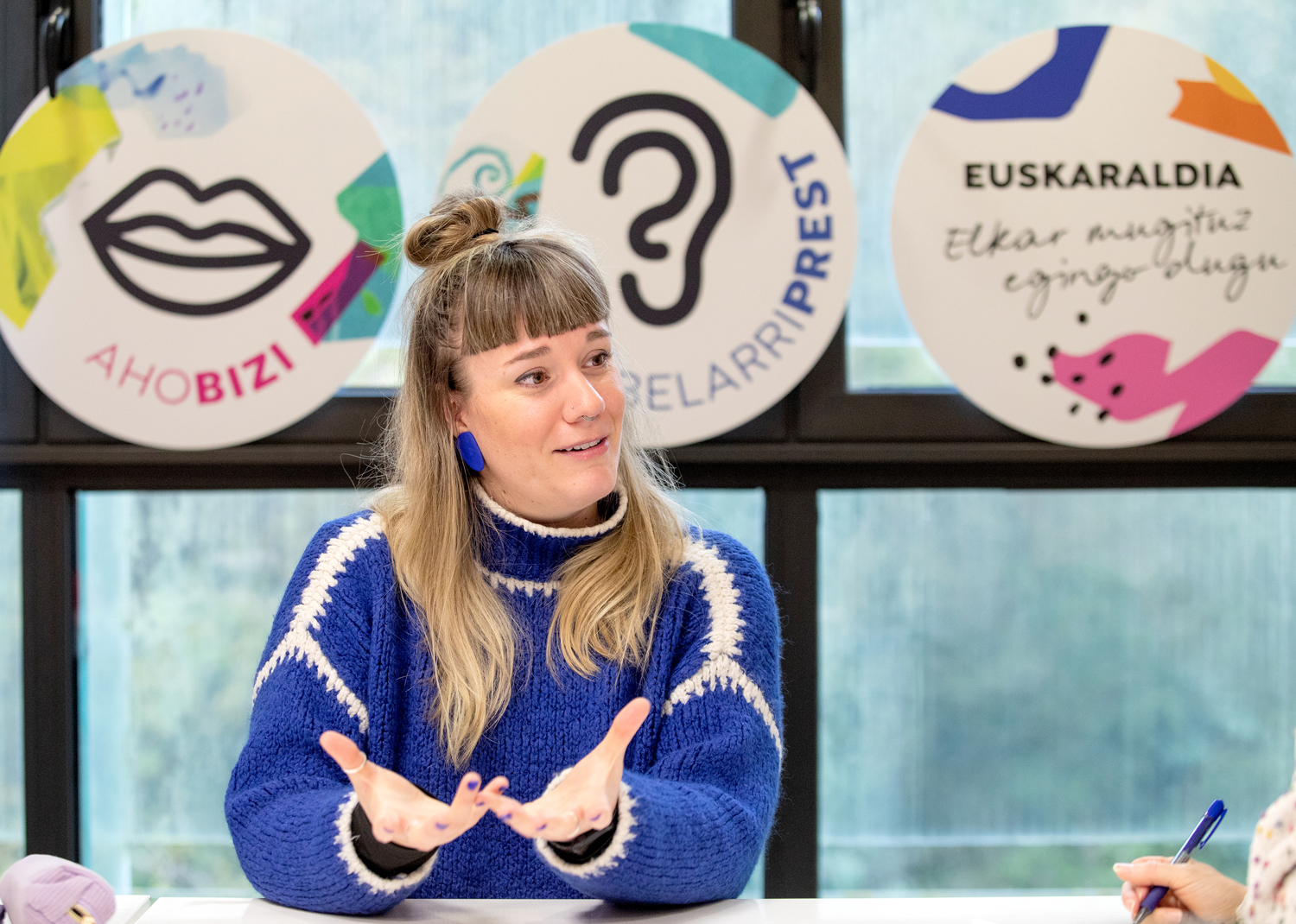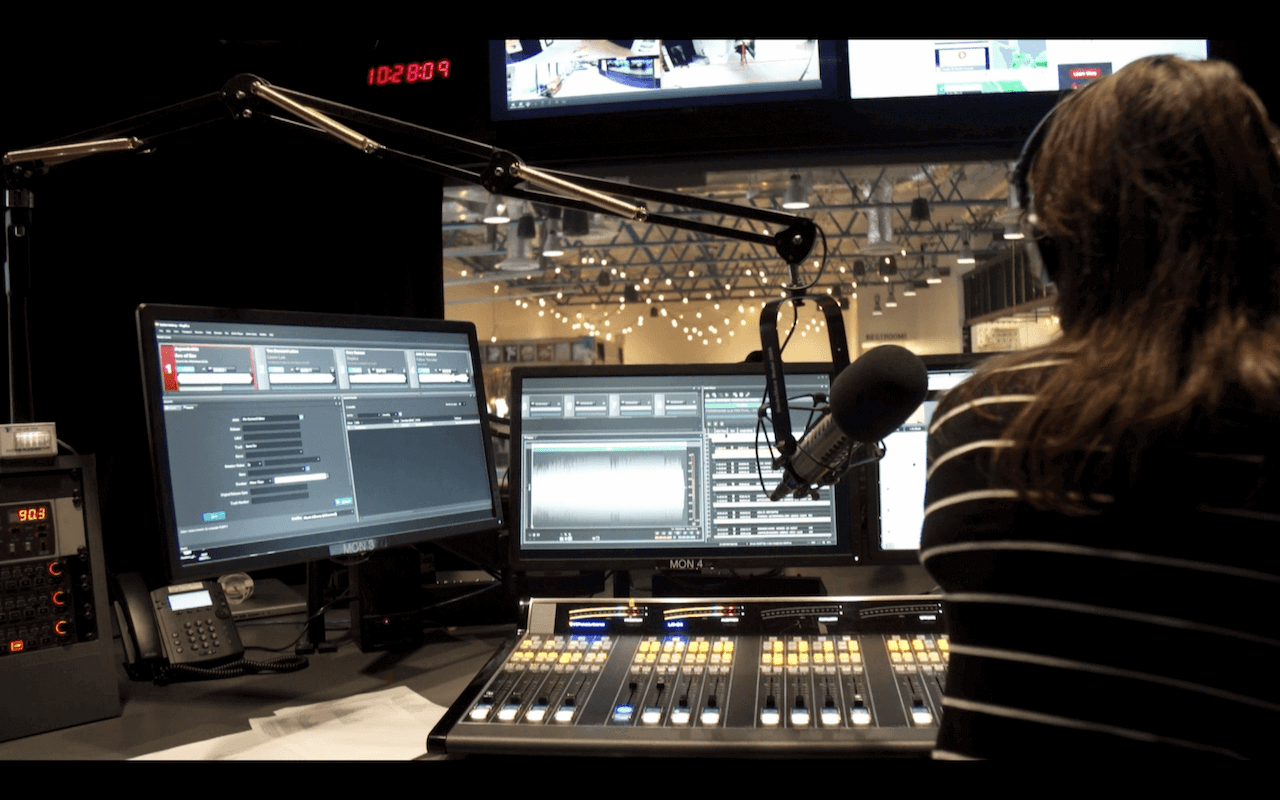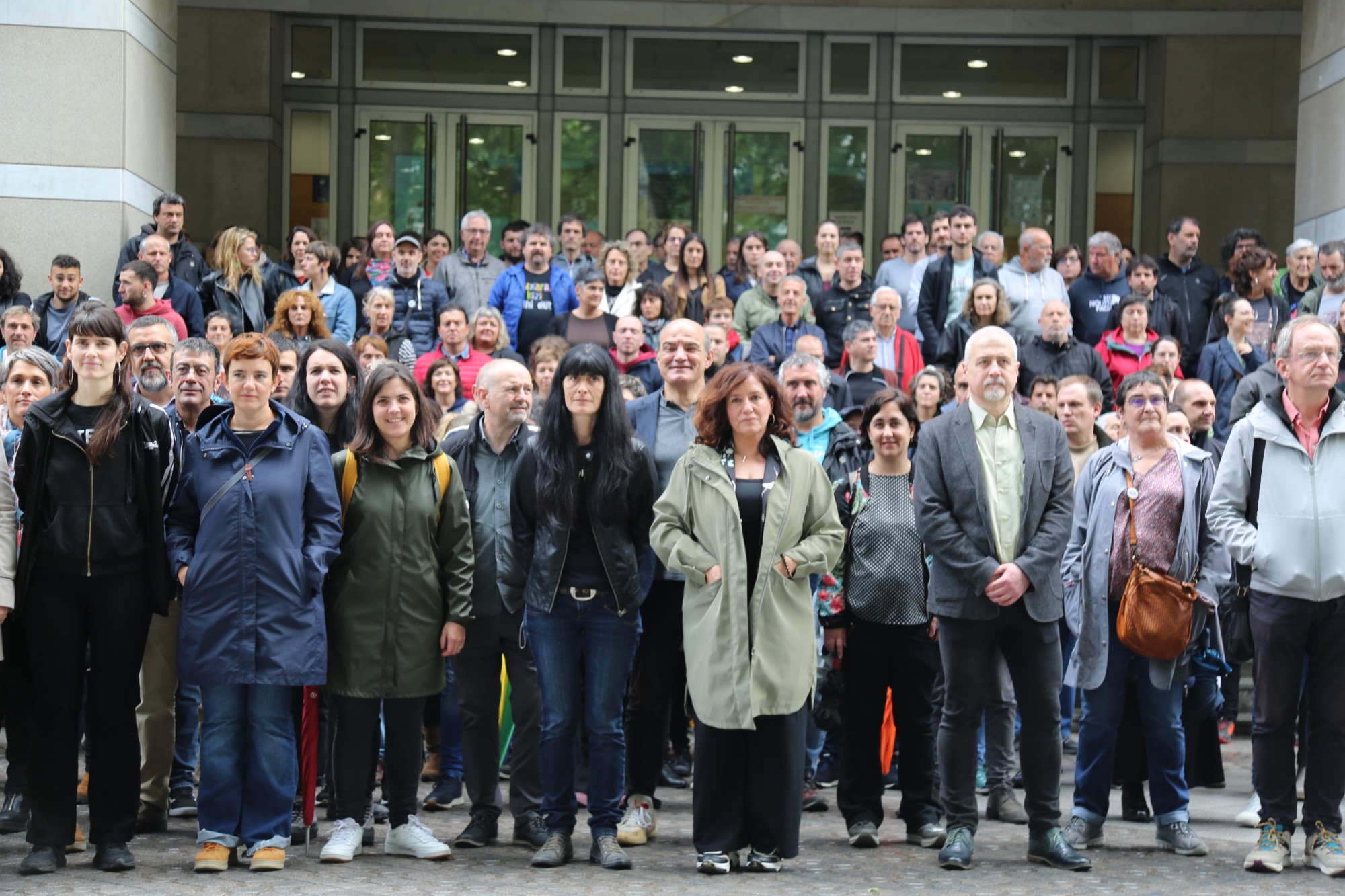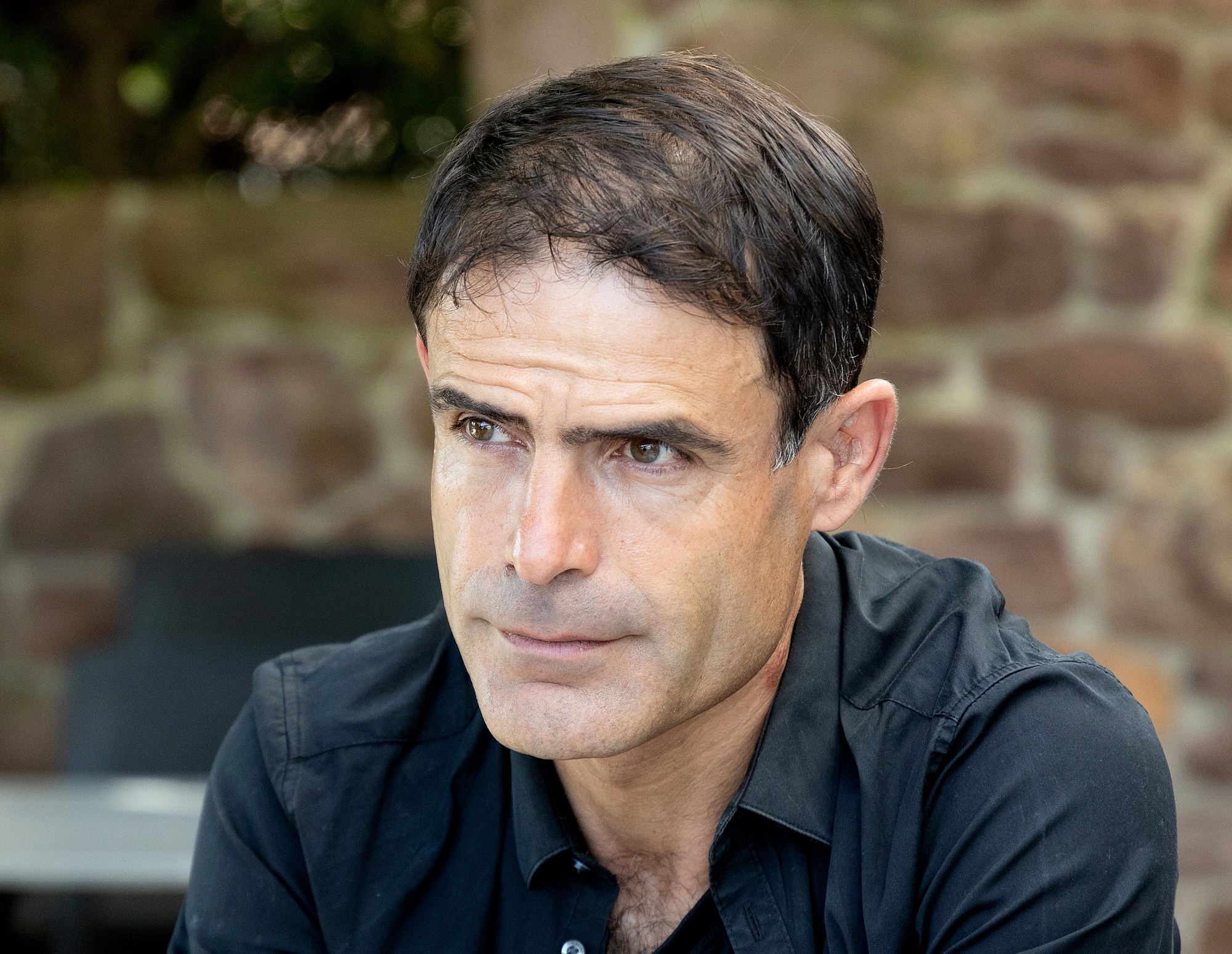Why are Basque students enrolled in Spanish groups?
- About 75% of students from the Basque Autonomous Community perform the university entrance test in Euskera. In the Faculty of Social Sciences and Communication of the University of the Basque Country, enrollment in Basque does not reach 37%. Why? What factors influence this? What are the consequences of this?
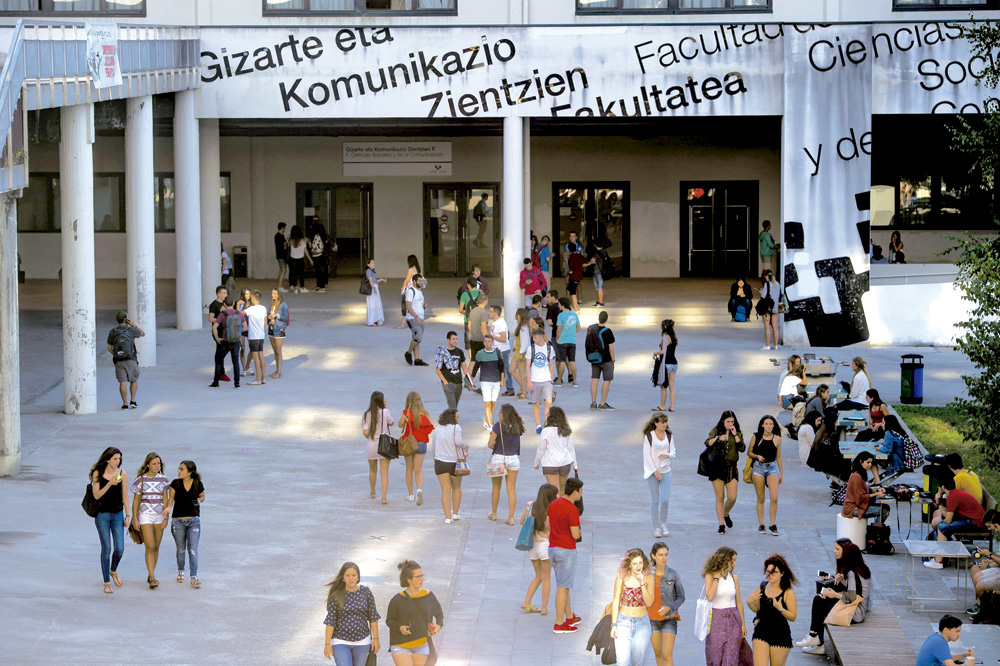
In 2015, the Euskera Commission of the School of Social Sciences and Communication conducted a survey. Through the questions raised to the students, he drew a general idea of why enrolment trends and launched a campaign for the next course. Hand sheets were distributed among the students who were enrolled to override the “prejudices” around the Basque country: “Quality is better in the Spanish classes”, “the job openings are wider if studied in Spanish”, “the Basque groups are more closed”, etc.
The campaign had a special impact on the Degree in Audiovisual Communication. In fact, enrollment in Euskera exceeded 50%. The next course, on the other hand, went down again.
According to journalist Jaione Aiestaran, “the language proficiency of the speaker is a very dynamic concept that is continually transformed, delimited and complete”. Therefore, there are several factors that influence the use of the tongue. Aiestaran has carried out an analysis of the trends in the enrolment of Social Sciences and Communication students. He has used quantitative and qualitative techniques to search for reasons and reasons for the evolution of registrations in Basque, as well as to propose the diagnosis in recent years.
Factors that influence the use of Euskera
There are many reasons why higher studies in Spanish can be studied. First of all, the pressure of Spanish. According to the study by Aiestaran, the pressure is high, both in contexts favorable to the Basque Country and in contexts where the presence of the Basque Country is an obstacle. In fact, UPV/EHU professor Jone Hernández says that today’s young people have known the right to learn Basque and continue to assimilate it with their families and society: “How to integrate the context and the references these young people know with the contexts and references offered by their families?”
In addition, Aiestaran referred to customs. As he explained, the linguistic habit of people is directly related to the context, the image of the Basque school and the lack of consciousness. It also has to do with this the prestige and legitimacy of the Basque variants. In fact, “new minority language speakers often feel insecure, lack of confidence and are not authentic speakers, and seeing oneself as a new Basque can have consequences.”
Aiestaran has also taken into account the values, awareness and commitment that young people attribute to the Basque country: “Learning Euskera does not necessarily imply identification or commitment to language.” The integrative factor is usually mixed with identity; sometimes it is very real, but for many who live in Spanish the Basque language is not a language of integration. In this sense, it has reminded that during adolescence there is a restructuring of identity among adolescents. At this time, different aspects of oneself are integrated and a crisis of reference models is opened.
In conclusion, Aiestaran stressed the importance of job expectancy and the value of language in the labour market. As he explained, in the CAV the idea that Euskera is necessary to work in the future is very widespread (77%) and in Navarre it also has enough weight (46%); in Iparralde, for its part, they are far from this data (22%).
In Basque and Spanish, students prefer to study the two
For the analysis of trends in the enrollment of Communication and Social Sciences students, the journalist has investigated the enrollment in Basque of the new access to the UPV/EHU, between the courses 2003-2004 and 2016-2017. In addition, he has conducted six interviews with first-year students from the three communication degrees taught at the Faculty of Humanities and Educational Sciences of the UPV/EHU.
As he explained, since the course 2003-2004, registrations of new access in Basque at the UPV/EHU have increased steadily. In fourteen years, these registrations have increased by 13.18 points, from 37.82% to 51%. As for the Faculty of Social Sciences and Communication, the Audiovisual Communication is the one with the most incidences there have been. In the 2007-2008 academic year, 55.8% of the Audiovisual Communication students enrolled in the Basque group. In the next decade, Basque registrations stood at around 40% and in 2015-2016 they stood at 32%.
Aiestaran has explained that the degrees of Public Relations, Advertising and Journalism have also evolved in a similar way. In Advertising and Public Relations, enrollment in Basque has never reached 50%.
With regard to trends in enrolment and surveys, the journalist explained some conclusions. First, he points out that there are students who see Basque as a school language, an instrument of formal education: “They limit the ability of Euskera to hold a degree, Euskera is not an instrument for reflection or debate.” In their opinion, students link the university to freedom, because they have the opportunity to learn what they have decided: “For an 18-year-old who is in the final phase of the search for identity, this decision can be a way to break with the customs, traditions or impositions that have existed until then.” But at the same time, many others reproduce the process carried out by their families.
According to the study by Aiestaran, students are clear that Euskera may be of great importance for the world of work. People interested in working in the Basque Country see the knowledge of the Basque Country as essential, along with other languages such as French, English, etc. The journalist explained that for these students the Basque "is nothing but an added value".
For those who want to work outside Euskal Herria, on the other hand, learning Euskera is “a way to close the doors”: “The validity of Euskera completely disappears beyond our borders”. In fact, for some Euskera has been a “imposed” language, as it has had a limited space in their lives: the school classroom, a regulated and compulsory space.
Others believe that the university should offer the possibility of studying in two languages. In fact, all the students surveyed agree that the linguistic models of the university are too dense, because having to choose necessarily means leaving aside. In the multilingual model they propose, each student would choose the language in which they want to study each of the subjects. In this sense, Aiestaran explained that the "dense" limit between the models can be detrimental to the registrations in Euskera.
You may not know who Donald Berwick is, or why I mention him in the title of the article. The same is true, it is evident, for most of those who are participating in the current Health Pact. They don’t know what Berwick’s Triple Objective is, much less the Quadruple... [+]
Is it important to use a language correctly? To what extent is it so necessary to master grammar or to have a broad vocabulary? I’ve always heard the importance of language, but after thinking about it, I came to a conclusion. Thinking often involves this; reaching some... [+]
Adolescents and young people, throughout their academic career, will receive guidance on everything and the profession for studies that will help them more than once. They should be offered guidance, as they are often full of doubts whenever they need to make important... [+]
Maiatzaren 17an Erriberako lehenengo Euskararen Eguna eginen da Arguedasen, sortu berri den eta eskualdeko hamaika elkarte eta eragile biltzen dituen Erriberan Euskaraz sareak antolatuta
Ansorena´tar Joseba Eneko.
Edonori orto zer den galdetuz gero, goizaldea erantzungo, D´Artagnanen mosketero laguna edo ipurtzuloa, agian. Baina orto- aurrizkiak zuzen adierazten du eta maiz erabiltzen dugu: ortodoxia, ortopedia, ortodontzia... Orduan (datorrena... [+]
We have had to endure another attack on our language by the Department of Education of the Government of Navarre; we have been forced to make an anti-Basque change in the PAI program. In recent years, by law, new Model D schools have had to introduce the PAI program and have had... [+]
"Ask for your turn and we'll join you," the willing and cheerful announcer who speaks from the studios tells the young correspondent who walks through the streets of Bilbao. The presenter immediately addressed the audience. "In the meantime, we are going to Pamplona..." They opened... [+]
Aberri Eguna elkarrekin ospatzeko xedez sortu zen Euskal Herria Batera plataforma. Aurten, ikusgarri bat eskainiko dute apirilaren 11n, Manex Fuchs antzerkilariaren, Lorea Agirre idazlearen eta Martxel Rodriguez dantzariaren eskutik.











